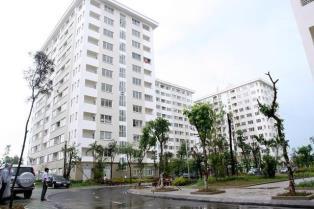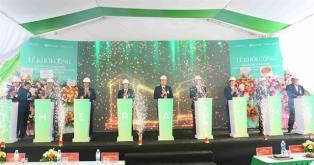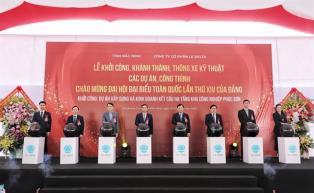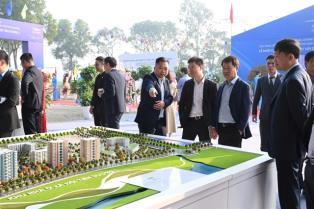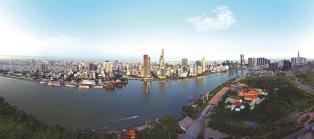The Ministry of Construction has proposed raising the income cap for individuals eligible to purchase homes at social housing projects from VNĐ15 million to VNĐ20 million.
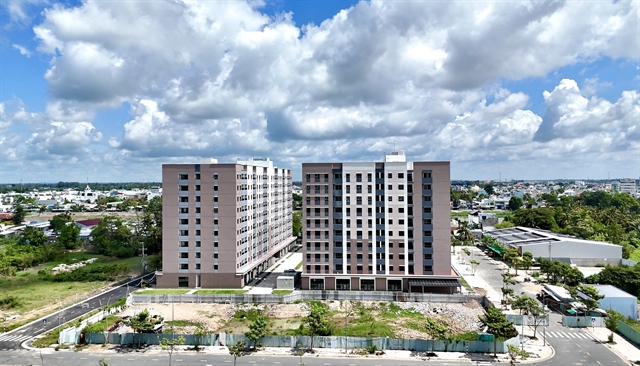
HÀ NỘI — The Ministry of Construction is pushing to raise the income cap for individuals eligible to buy homes in social housing projects from VNĐ15 million to VNĐ20 million, potentially widening the door for more low-income earners to become homeowners.
Under the draft decree set to replace Decree 100/2024/NĐ-CP, recently opened for public comment, married couples would qualify if their combined monthly income does not exceed VNĐ40 million, up from the current VNĐ30 million.
The income cap for single parents with minor children is proposed at VNĐ30 million. Verification of income would be carried out by employers or relevant agencies, based on wages over the preceding 12 months.
Raising the income threshold for social housing purchases is welcomed by experts. President of the HCM City Real Estate Association Lê Hoàng Châu said many people earning just above VNĐ15 million have been excluded from social housing despite that income not enough to cover living costs in major cities like Hà Nội and HCM City.
Buyers typically spend around VNĐ7-8 million a month repaying loans for social housing. Increasing the threshold to VNĐ20 million ensures buyers have sufficient funds left for basic living expenses, said Nguyễn Xuân Dũng, chairman of logistics firm Viconship.
At a conference on social housing development in mid-August, Prime Minister Phạm Minh Chính indicated support for the ministry’s proposal to raise income limits for social housing purchases.
The ministry also proposed preferential interest rates for loans to social housing buyers through the Việt Nam Bank for Social Policies to be cut from 6.6 per cent to 5.4 per cent.
While the proposed rate reduction is a positive signal, its real value lies in stability in the long run, Huỳnh Phước Nghĩa, an economist, said.
If the rate becomes floating after a few years, it will pose significant risks to borrowers, he said, adding that the policy is stable only when rates are kept stable.
Applying a common income cap nationwide is also unreasonable, given the sharp differences in living costs across regions, he added.
Police to verify income of informal workers
Another notable proposal is that commune-level police, rather than local people’s committees, certify income eligibility for informal workers who do not have labour contracts.
The verification would be based on the national population database with confirmation required within seven days from the date of application.
The ministry said that the proposal aims to address difficulties raised by localities such as Hà Nội, Thanh Hoá, Đà Nẵng, Cần Thơ and Quảng Ninh in verification due to the lack of data to certify incomes for informal workers.
Previously, the PM also asked the Ministry of Public Security to improve the population database to evaluate eligibility for social housing purchases in order to simplify procedures.
These revisions could expand access to social housing, particularly in urban areas where housing prices have far outpaced workers’ incomes, Nguyễn Văn Đính, president of Việt Nam Association of Real Estate Brokers (VARS), said.
However, with loosening income criteria, strict oversight is needed to ensure transparency and prevent abuse of policy, he said.
Tackle the root

Still, experts said the proposals would only address part of the problem.
According to Nghĩa, supply remains the biggest challenge to Việt Nam’s social housing policy.
The Government must play a stronger role in determining supply by working with public companies or trade unions to create housing stock, he said, adding that relying on private developers would not be enough because they are profit-driven and social housing is not an attractive segment.
President of the Việt Nam Real Estate Association Nguyễn Văn Khôi said that low margins made social housing not attractive to developers. Localities have yet to show determination in land clearance and infrastructure development.
The social housing market still faces multiple challenges that must be resolved, VARS president Đính said.
One major problem is land allocation, he said, adding that land designated for social housing does not match the pace of urbanisation and residential demand. Many projects are located in areas with poor infrastructure and limited access to hospitals or schools.
There is also a mismatch between supply and demand. While demand outstrips supply, some projects have failed to attract buyers due to complicated procedures, unsuitable locations and poor infrastructure development, Đính said.
He added that speculation and illegal transfers are also distorting the market.
Developers should be supported with streamlined legal procedures, access to credit and reasonable profit margins to promote the development of social housing projects, experts said.
The ministry’s statistics showed that more than 36,900 social housing units had been completed as of 15 July 2025, equivalent to 37 per cent of the target. More than 111,622 are under construction with 74,000 expected to be delivered in 2025.
These are part of the Government’s plan to develop one million social housing units by 2030. To date, 692 projects have been implemented with a total of 633,000 units.
The ministry said it will streamline administrative procedures to support developers. — VNS

